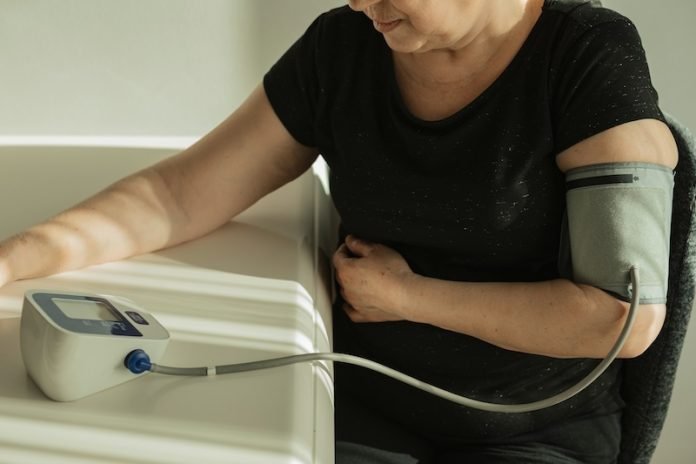
Resistant hypertension, where high blood pressure remains uncontrolled despite the use of multiple medications, presents a significant health risk.
It increases the likelihood of severe conditions such as stroke, heart attack, and chronic kidney disease. This stubborn health issue not only complicates treatment strategies but also significantly shortens life expectancy for those affected.
With high blood pressure being a leading cause of death globally, the quest for effective treatments is more urgent than ever.
In Germany, where antihypertensive drugs are widely prescribed, a notable portion of the population battles with blood pressure levels that stubbornly exceed the desired targets despite the intake of three or more blood pressure medications.
This condition underscores the complexity of managing cardiovascular diseases and highlights the need for innovative and more effective treatment modalities.
Addressing this critical health challenge, Professor Dr. Bernhard Schmidt and his at Hannover Medical School have taken significant strides.
Through a meticulous network meta-analysis of numerous scientific studies, they’ve assessed the efficacy of various treatments for resistant hypertension, shedding light on the most promising strategies for managing this condition.
Among the explored treatments, spironolactone, a medication that blocks the effects of the hormone aldosterone, emerged as the most potent in lowering blood pressure.
This finding underscores the importance of targeted pharmaceutical interventions in managing complex cases of hypertension.
Additionally, the study highlighted the beneficial impact of lifestyle modifications, pointing to the holistic nature of effective hypertension management.
While the study examined other medicinal and interventional approaches, including renal denervation and the baroreceptor pacemaker, these methods showed less pronounced effects compared to spironolactone.
Renal denervation involves a catheter-based procedure that aims to reduce blood pressure by destroying nerve pathways in the renal artery, whereas the baroreceptor pacemaker is a device that modulates nerve cell activity in the carotid artery to regulate blood pressure.
Blood pressure is typically represented by two values: systolic pressure, which measures the force exerted when the heart pumps blood into the arteries, and diastolic pressure, which measures the pressure in the arteries when the heart rests between beats.
High blood pressure is diagnosed when readings consistently exceed 140/90 mmHg. Achieving and maintaining a blood pressure below this threshold significantly reduces the risk of cardiovascular events.
The study by Professor Schmidt’s team, published in Cardiovascular Research, offers a comprehensive comparison of the effectiveness of different hypertension therapies.
It involved analyzing 24 studies that tested various treatments against placebo or sham therapies, employing a network meta-analysis methodology that allowed for cross-comparison of treatment efficacy.
This research emphasizes the variability in treatment responses among peoplewith resistant hypertension and underscores the critical role of personalized medicine in managing complex health conditions.
By identifying spironolactone as a highly effective option and reaffirming the value of lifestyle changes, this study provides valuable insights for healthcare professionals navigating the challenges of treating resistant hypertension, paving the way for more nuanced and effective treatment strategies.
If you care about high blood pressure, please read studies about potatoes and high blood pressure, and top 10 choices for a blood pressure-friendly diet
For more information about high blood pressure, please see recent studies about impact of vitamins on high blood pressure you need to know, and the powerful link between high blood pressure and a potassium-rich diet.
The research findings can be found in Cardiovascular Research.
Copyright © 2024 Knowridge Science Report. All rights reserved.



